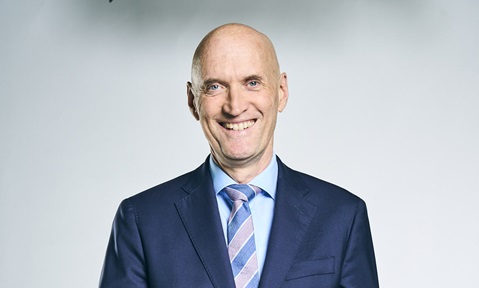The Singaporean Researchers Global Summit – connecting diverse research talents from Singapore and around the world
Researchers and industry leaders at the Summit shared their insights and directions for the future of R&D in a post-COVID world.
 What do autonomous disinfection robots, smart masks and breathalyser tests have in common? They were all developed by NTU scientists during the COVID-19 pandemic. These and other innovations were featured at the Singaporean Researchers Global Summit 2021, hosted and organised by NTU.
What do autonomous disinfection robots, smart masks and breathalyser tests have in common? They were all developed by NTU scientists during the COVID-19 pandemic. These and other innovations were featured at the Singaporean Researchers Global Summit 2021, hosted and organised by NTU.
The two-day summit, held from 20 to 21 September, brought together Singapore Institutes of Higher Learning and Singaporean researchers locally and around the world to share research contributions as well as discuss insights on research initiatives and directions in the COVID and post-COVID world.
More than 800 people in Singapore and overseas registered for the hybrid event that was conducted in virtual and in-person formats. Deputy Prime Minister and Coordinating Minister for Economic Policies Heng Swee Keat and Education Minister Chan Chun Sing were the Guests of Honour for the opening and closing ceremonies respectively.
The importance of Science and Technology during COVID-19
In his welcome address, NTU President and Distinguished University Professor Prof Subra Suresh emphasised the significance of Science and Technology during the COVID-19 pandemic, from the development of vaccines at unprecedented speed, to the adoption of technology at unparalleled pace. He outlined the critical importance of research, universities and evidence-based decision making in dealing with COVID-19, especially with the prevalence of fake news, rising inequalities and yet unknown impacts of the pandemic on society.
“This Summit is a platform to demonstrate the close collaborations of Singapore’s autonomous universities, and to bring diverse communities of people together. It also allows us to reach out to Singaporeans overseas, and to continue discussions about the exciting research opportunities in Singapore,” said Prof Suresh.
RIE 2025: Singapore’s five-year strategic plan for Research and Development
Despite the challenges it has caused, the pandemic has also created new opportunities for research to benefit humanity, added Prof Suresh as he introduced the theme of the summit: Opportunities in Research, Innovation and Enterprise Plan 2025 (RIE 2025).
RIE 2025 is the Singapore government’s plan to fund Research and Development and the commercialisation of technology over the next few years. It aims to ensure Singapore remains competitive in R&D internationally and that R&D contributes to enhancing the lives of Singaporeans.
$25 billion has been committed to supporting initiatives of RIE 2025.
“At NTU we will strongly support Singapore’s national R&D priorities. Our five-year strategic plan, NTU2025, details our ambitions for the pillars of education, research and innovation, and for nurturing a strong NTU community. Our research pillar is closely aligned with RIE 2025,” said Prof Suresh in his welcome address.
Elaborating on the key focus areas of the RIE 2025 – manufacturing, human health and potential, sustainability, and digital economy, Deputy Prime Minister Heng Swee Keat highlighted that Singapore will build on its key strengths as a global research and innovation hub, and engage in collaborations across different fields and countries.
Mr Heng also noted that several COVID-19 innovations such as diagnostic test kits in Singapore were the result of partnerships between academia and collaborators, thus underscoring the importance of collaborations between universities, industry and public agencies.
“We have been able to punch above our weight, because of the strengths of our partnerships – across academia, the private sector and the Government; within Singapore, and beyond our shores. This spirit of collaboration is a strength of our system, and a quality that we must continue to nurture,” said Mr Heng.
“To tackle some of the hardest problems facing humanity, we must gather the best minds in Singapore and beyond. We must collaborate extensively to make new breakthroughs that can make an impact on the world and on people’s lives.”
Collaboration is the key to tackling real-world problems
Interdisciplinary research was also a topic of focus at the Summit. The importance of research that spans several disciplines was reiterated in several keynote talks, where researchers from various fields in academia and industry leaders discussed the advantages of working together to solve exciting real-world challenges.
For example, integrating fields of research in the Social Sciences and Humanities (SSH) such as behavioural sciences with Science, Technology, Engineering and Mathematics (STEM) may help scientists understand people’s attitudes towards measures such as vaccination, enabling more effective campaigns that tackle the COVID-19 pandemic.
Career support for early career and female researchers were also discussed at the Summit.
Supporting Singaporean scientists
In his closing address, Education Minister Chan Chun Sing announced that $457 million has been set aside to strengthen social science and humanities research in Singapore over the next five years.
The funding will support key initiatives launched by the Social Science Research Council (SSRC) and help to boost support for young Singaporean researchers with promising careers as well as efforts to build a vibrant social science and humanities research ecosystem in Singapore.
Highlighting the objective of cultivating interdisciplinary research, Mr Chan said “The COVID-19 pandemic has underscored the importance of interdisciplinary research. While a biomedical scientist can sequence the virus and develop vaccines, we need the behavioural scientists to help us better understand the science behind the impact of COVID-19 on our well-being".
Mr Chan also unveiled a new SSRC graduate research fellowship targeted at Singaporeans pursuing their PhDs or post-doctorate stints overseas.
The fellowship will provide a boost to overseas Singaporeans who have embarked on a research career on their own and are interested in working with established researchers in Singapore.






-2.tmb-listing.jpg?Culture=en&sfvrsn=6685d443_1)